CLICK ON IMAGES TO ENLARGE. REPEAT IF REQUIRED.
Susan Rushton’s post earlier today featured colchicums. There are a number of different varieties of these autumn crocuses.
Ours are different, and a bit battered by wind and rain. I think they are speciosum. Here they are Susan.
Whilst on my way to obtain the first two images above, I spotting a spider waiting on its web. As I watched it hauled itself up aloft and I just left it to get on with it.
Later, I walked the same way to capture the flowers in a different light.
The spider was gloating over its meal of the day. That was one bee that would seek no more pollen.
It is, of course, the season for these insectile predators. I couldn’t even photograph these snapdragons without one poking its nose in.
The antirrhinums appear to the right of this view through the arch framing the Oval Bed.
The kniphofia to the left is one of many in the Weeping Birch Bed
blending with the begonia in a hanging basket behind.
We still have many thriving fuchsias
including one festooning the New Bed.
This afternoon I finished reading ‘Phineas Finn’, the second of Anthony Trollope’s six Palliser novels. This follows the fortunes of the eponymous hero as he ventures into the Victorian Parliamentary world. Without giving away any of the story I can say that, against the background of conflict over reform bills in the 1860s, we have love triangles; fraught courtships; political and matrimonial intrigue; and a view of social history of a time when Members of Parliament needed independent incomes in order to fund their campaigns and carry out their duties if elected; and when women were dependent upon submission to their husbands.
Trollope’s lengthy work is rendered readable by his elegant, flowing, prose, which may not suit some of today’s readers requiring shorter, more racy works.
The author is clearly in sympathy with the status of women, especially those trapped in unhappy marriages. Perhaps that is why, as stated by J. Enoch Powell – himself a controversial politician active a century after the period of the book – the female characters have rather more depth of study than do the males.
Powell’s introduction is sound, and he was aptly chosen by the Folio Society whose 1989 edition I was reading.
In my review of ‘Can You Forgive Her?’, I expressed my disappointment in the illustrations of Llewellyn Thomas. I am no less enamoured of those he has made for the current volume, so I won’t reproduce any.
This evening we dined at Lal Quilla in Lymington. My main meal was Goan lamb, while Jackie’s was Chicken shashlik. We shared special fried rice, a paratha, and onion bhaji; and both drank Kingfisher and the customary complimentary Bailey’s.
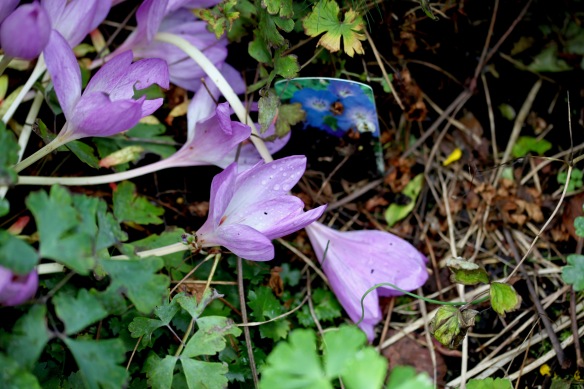

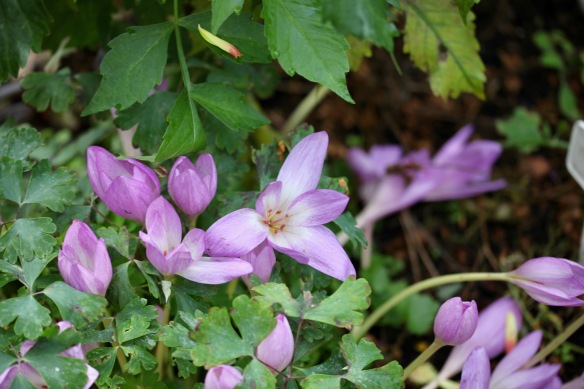

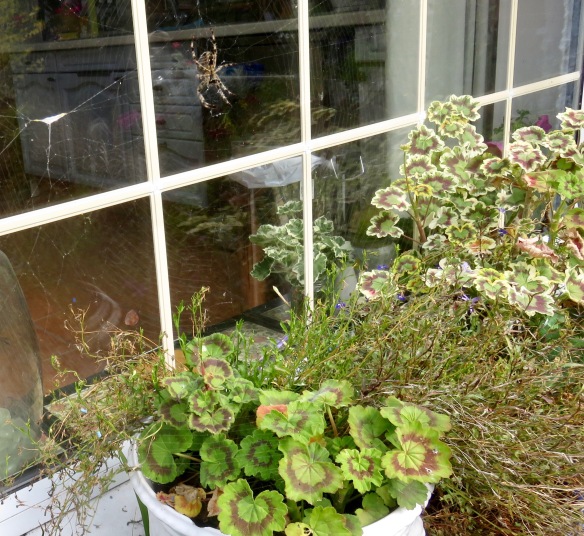
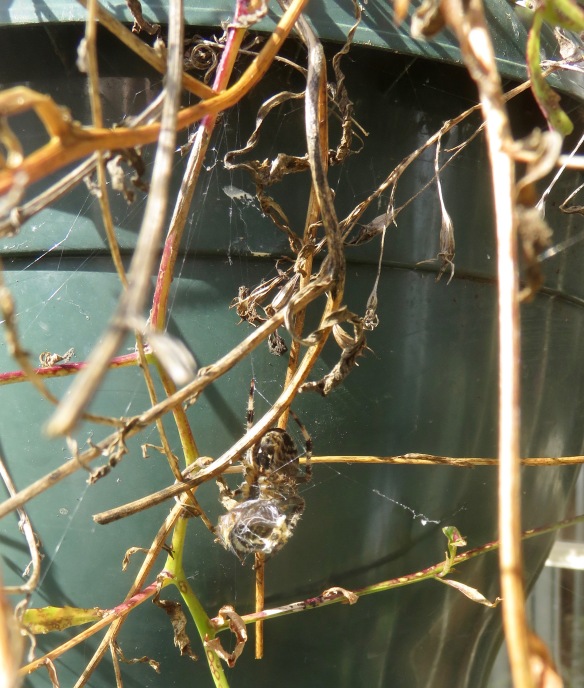

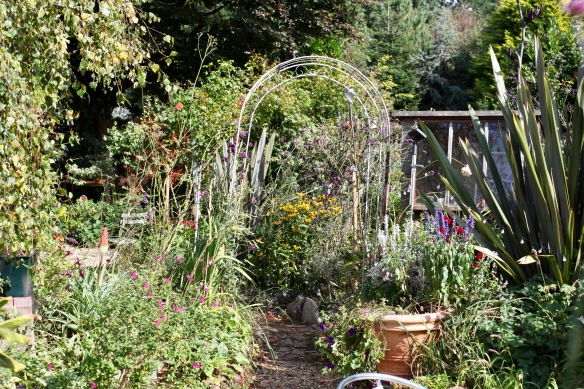
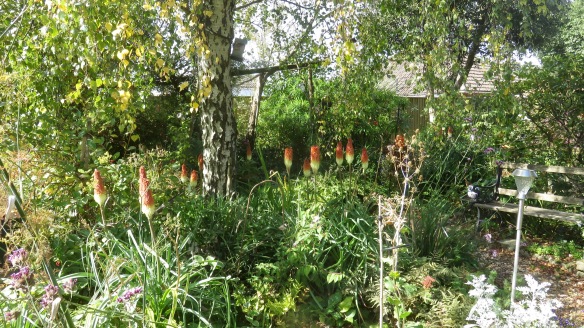
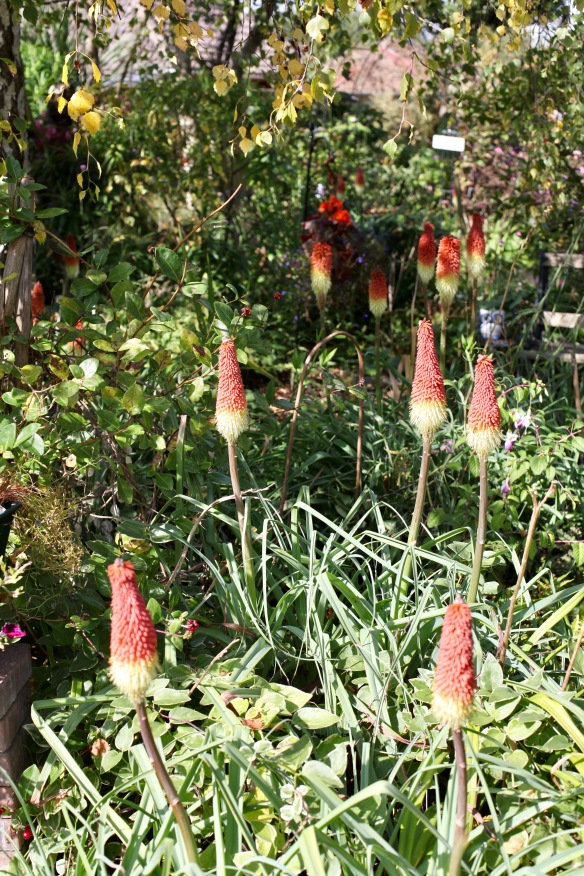
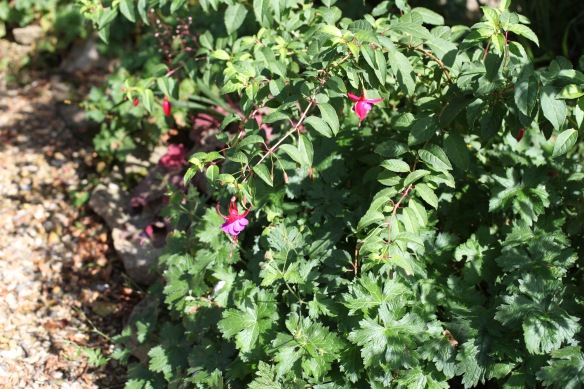
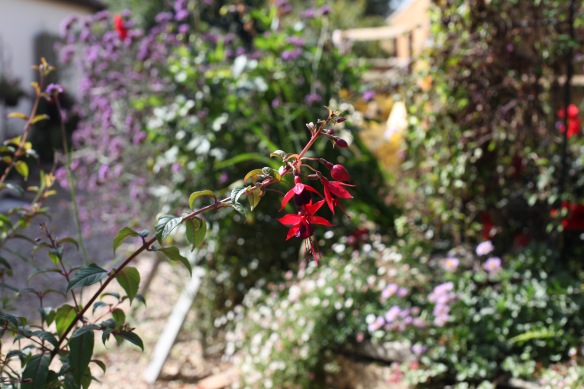
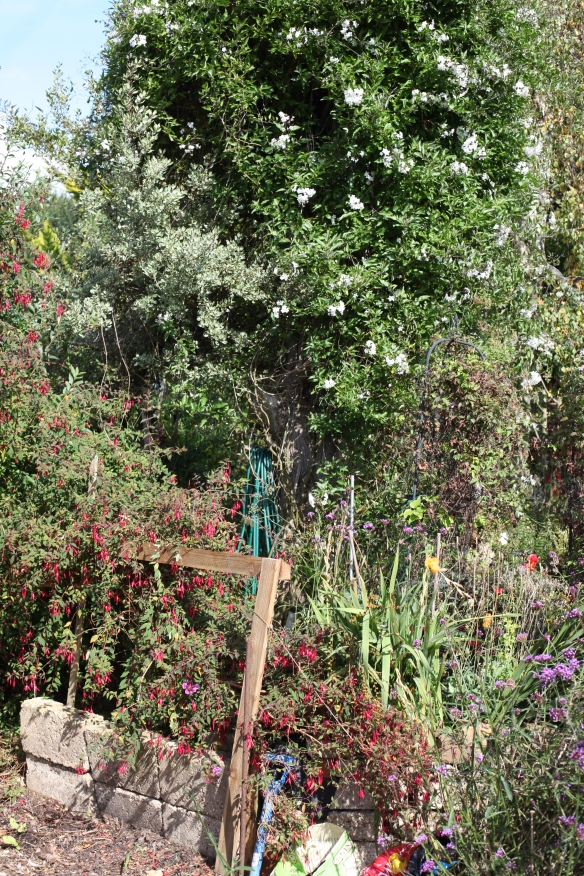
People used to say that the more spiders you see this time of year, the harsher the winter will be. I hope it’s not true, because we’re seeing loads of them.
Not heard that. We’ll see. Thanks a lot, Oglach
We have a saying that the more spiders you see, the more there is harmony and solidity (if on walls). Lovely photography as usual despite the fact there are less flowers.
Very many thanks, Geetha
I have a stern chat with any spiders I catch trapping bees – there are so many alternatives and bees are precious! I have no idea if they take any notice of me, but I have noticed the bee population appears to be increasing around here………
Keep at it, Pauline. Thanks very much
Thanks very much
Interesting. I haven’t ventured beyond The Way We Live Now and the Chronicles series.
A very good sign if bee numbers are increasing. As long as they aren’t African bees.
We do have lots of bees, Leslie. I am enjoying Palliser series so much that I have gone straight on to The Eustace Diamonds. Thanks very much.
Oh my word! That’s a big spider. I’d rather look at the photos of your flowers. Beautiful!
Beautiful!
Those white markings look like evil eyes. Many thanks, Jill
Spiders will eventually rule planet Earth. Although I have been meaning to read Mr Anthony Trollope’s books all along my half-life, I couldn’t get myself around to doing it. A recommendation from you may change that however.
I think you would like, Trollope, Uma, although the books are very long. Perhaps not as talented a storyteller as Dickens, but with a better grasp of the psychological complexities of humanity, Thanks very much
A lovely garden spider, Derrick! Honeybees often seem to be the hapless victims of their web snares.
We finally got some real soaking rain here today in the form of many passing storms coming through. Autumn is here.
Than you very much, Lavinia. I enjoy your comments, and am pleased you got some rain
What a spider! So many lovely flowers and such variety. Gorgeous
Many thanks, Lynn. Evil looking thing.
Haha
Goan Lamb? Is that a devious way of saying Goanna, those beautiful lizards which are a delicacy with the Aborigines. as this will attest \https://www.youtube.com/watch?v=Ec1AO34Rabg
Chillies first came to India via Goa, having been brought there from Mexico by the Portuguese. Goan food is hot. Thanks for the Goanna link
I was being facetious
I thought so – that’s why I amplified it a bit
As your post mentioned seasonal flowers, I wonder if there’s such a thing as autumn primroses – because I have them, flowering away in the garden.
https://www.google.co.uk/search?q=autumn+flowering+primroses&oq=autumn+primroses&aqs=chrome.1.69i57j0.12838j0j8&sourceid=chrome&ie=UTF-8 Thanks, Jenny
I’m a great fan of Fuchsias’s, and the redder the betterer
Beautiful images of the fading splendeur of the late-summer garden. I have been passionate about Trollope ever since my early teens when the BBC did a version of The Pallisers (I think Susan Hampshire was in it but that might be wrong and I haven’t looked it up). My mother brought me the books and I still have them. You are so right about his understanding of the plight of women in his day …
Very many thanks, Osyth.
Your garden still looks lovely, even with the spiders. I hope they stay outdoors.
I haven’t read Trollope. Perhaps at some point. I was re-reading a bit of Hawthorne’s The Scarlet Letter for something I’m writing, and I was struck by how beautiful his writing is. I had forgotten.
Thanks a lot, Merril. I liked The Scarlet Letter, too. Trollope is much longer, but, in my view, psychologically ahead of his time
Loads of spiders here, too. I have to de-spider all the flowers that I bring in for bouquets. And I still find them scampering on the kitchen counter.
Many thanks, Brenda
scary big spider there….eeks!
Your colchicums look lovely emerging from the aquilegias (I think?) Derrick.
I like Trollope too – you might have prompted me to re-read one of his books next. I’ve just finished Shirley for the umpteenth time.
Many thanks, Susan. Aquilegias, yes. It is almost 60 years since I read Shirley – rarely read anything more than once – there is so much else on offer.
You’re right of course, but I have a handful of favourites that are like comfort blankets.
Nothing wrong with that.
I recently wrote about the declining honey bee. Maybe it is due those huge scary spiders.
I was going to say that I remember Susan Hampshire and the Pleasances from The Pallisers but when I looked it up it seems I don’t – it was the Barchester chronicles. Despite my lapse of memory it was still good. I went on to read the Barchester books but didn’t read the Pallisers as I didn’t find them as interesting.
Thanks, Quercus. I haven’t yet finished either of the series, but find them more interesting now I am older.
I don’t think I appreciated all the subtlety when younger.
Me too – and I found politics boring
I like Trollope too – you might ingest prompted me to re-read one of his books future(a). scarey freehanded spider there….
Thank you Aristo